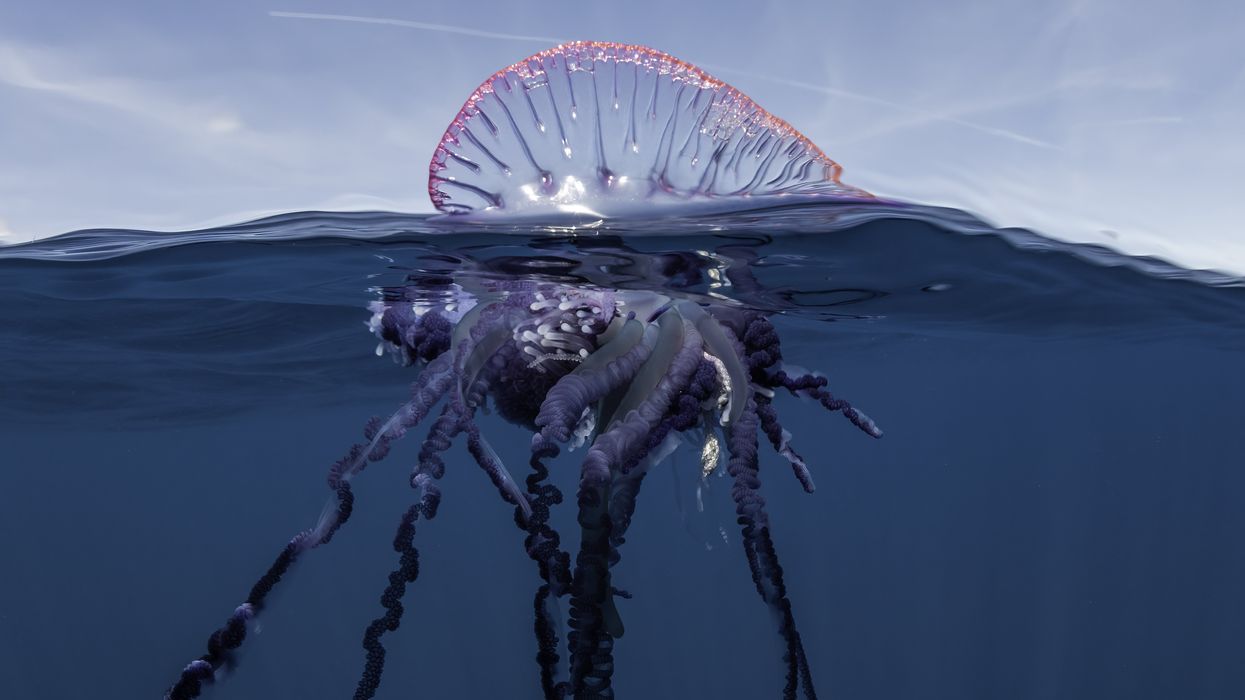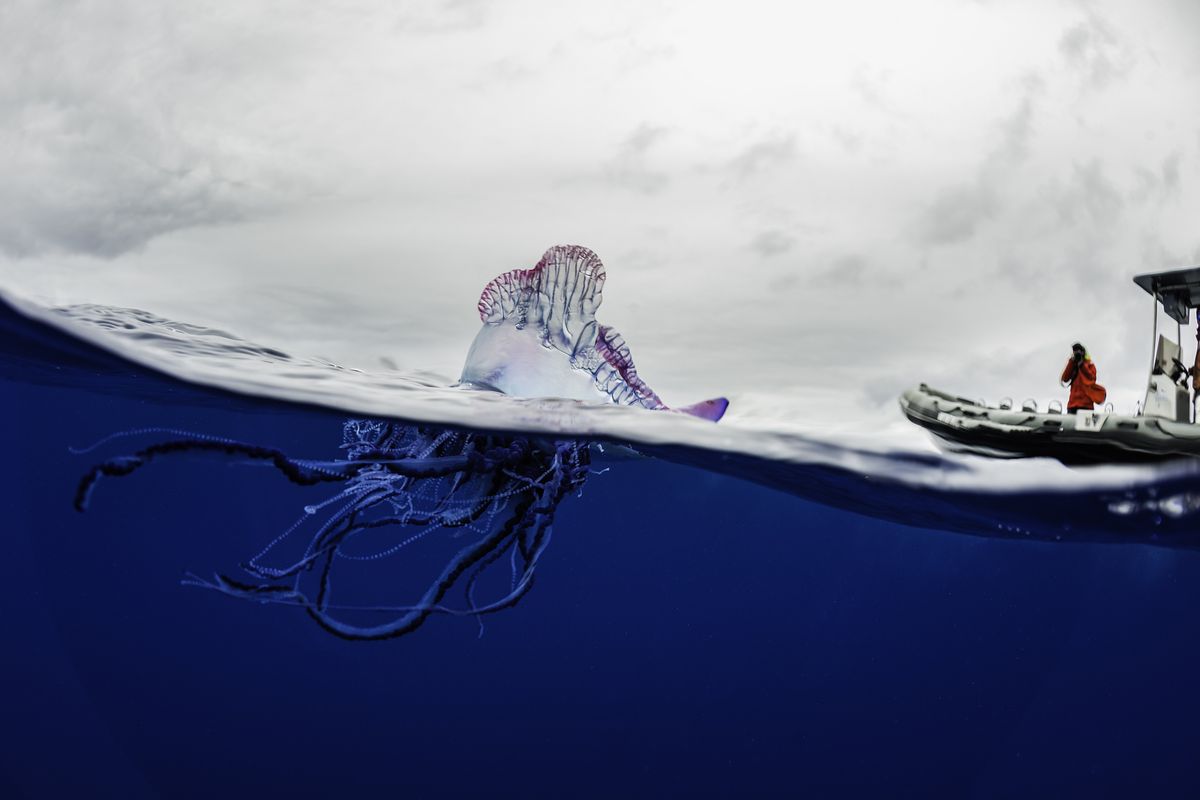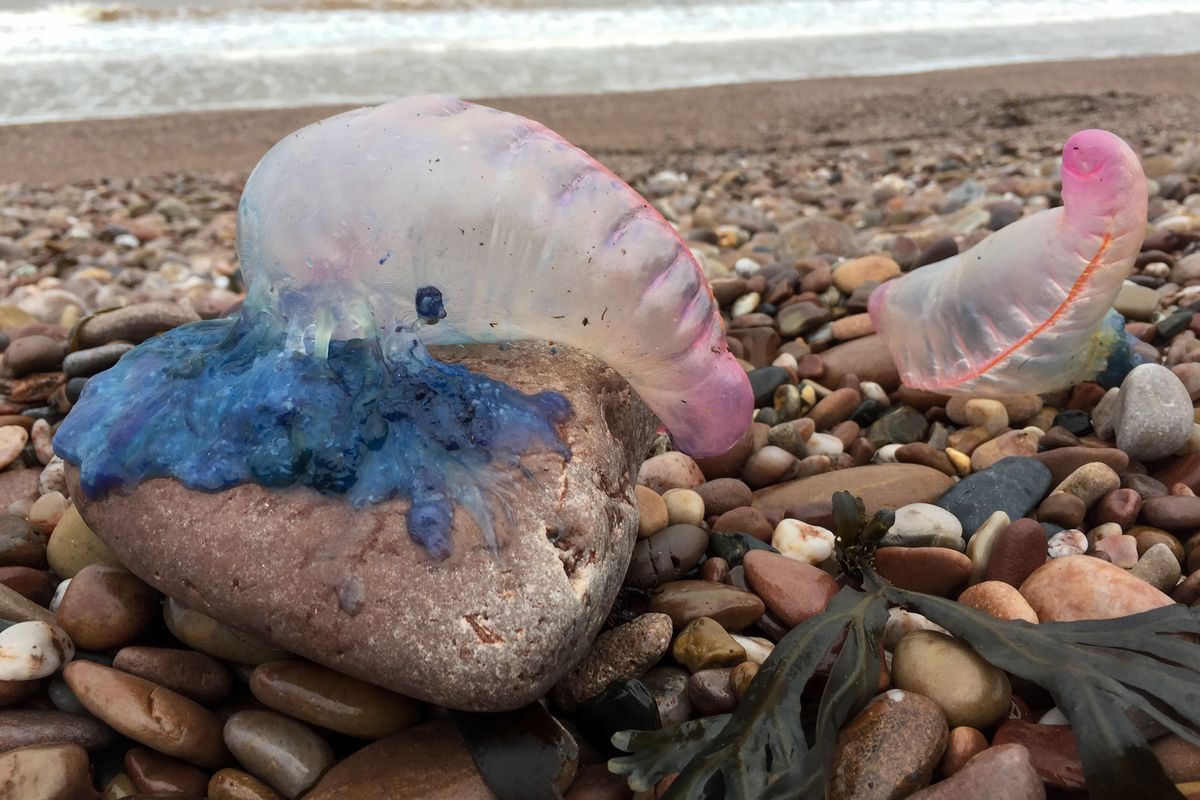World’s most dangerous jellyfish washes up on popular British beach as urgent warning issued

Coastguards have warned beachgoers to 'stay vigilant'
|GETTY

The creature's tentacles carry venom that can trigger fatal allergic responses or cardiac problems in vulnerable individuals
Don't Miss
Most Read
Trending on GB News
An urgent safety alert has been issued following the discovery of multiple Portuguese Man O' War specimens on a British beach.
The marine creatures, often regarded as the world’s most dangerous jellyfish, could pose a significant danger to beachgoers due to their highly venomous nature.
Sightings of several Man O’ War’s on Aberavon Beach in Wales prompted the Port Talbot Coastguard to raise the alarm.
Authorities are strongly advising members of the public to maintain a distance from these organisms and avoid any physical contact.
TRENDING
Stories
Videos
Your Say
Man O’ War’s possess tentacles capable of extending up to 30 feet, delivering venom that causes severe red welts and blistering.
More serious consequences can include fever, shock, and complications affecting the heart and lungs.
Though deaths remain uncommon, the venom can trigger fatal allergic responses or cardiac problems in vulnerable individuals.
The organisms' tentacles retain their stinging capacity after death, rendering beached specimens equally dangerous to those encountered in water.

An urgent warning has been issued after the world's most dangerous jellyfish began appearing on Aberavon Beach in Wales
|GETTY
Whilst commonly confused with jellyfish due to their translucent, balloon-shaped appearance and trailing tentacles, Portuguese Man O' War are actually siphonophores.
These are colonies of specialised organisms that come together to function as a single entity.
"We're urging everyone visiting Aberavon Beach to stay vigilant," a Port Talbot Coastguard spokesperson said.
"Do not touch these creatures, even if they appear dead, as their tentacles can still deliver a painful sting."
LATEST DEVELOPMENTS

The creature's tentacles carry venom that can trigger fatal allergic responses or cardiac problems in vulnerable individuals
|GETTY
"If you are stung, rinse the affected area with seawater not fresh water and carefully remove any tentacles using a credit card or similar object.
"Immerse the area in water as hot as can be tolerated for at least 30 minutes to help neutralise toxins, and seek medical advice by contacting HM Coastguard or a doctor," the spokesperson explained.
Officials confirmed they will not be clearing the creatures from the beach, expecting natural tidal movements to carry them back out to sea.
Authorities are encouraging beach visitors to immediately notify the Coastguard of any additional sightings.
Lifeguards are scheduled to patrol the beach throughout the weekend as changing tides and wind patterns may affect the creatures' movements.
Experts advise wearing protective footwear and maintaining safe distances from any unusual objects discovered along the shoreline.
Our Standards: The GB News Editorial Charter
More From GB News










